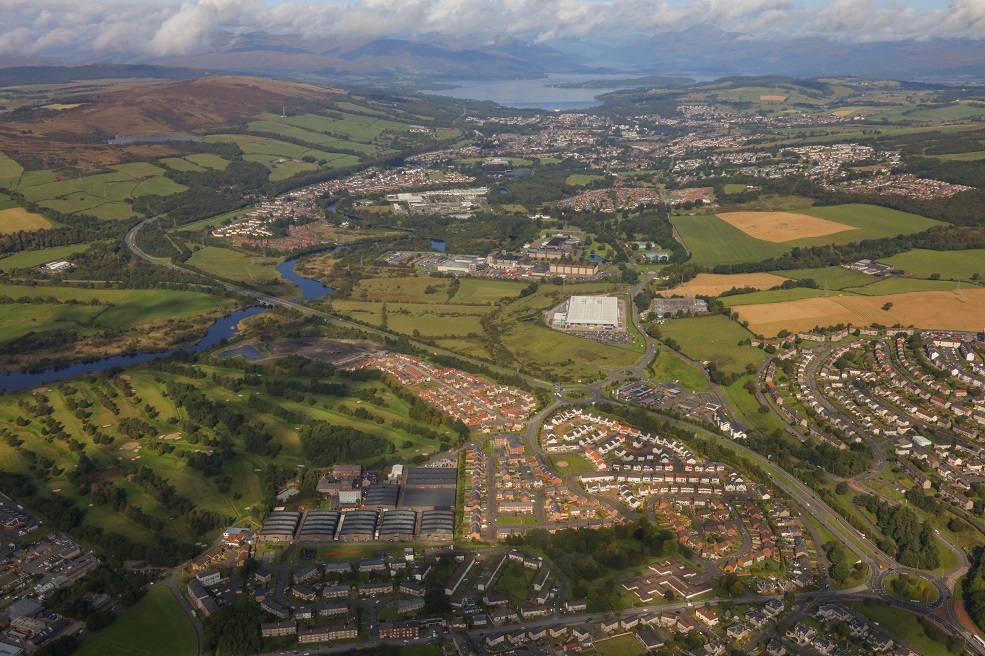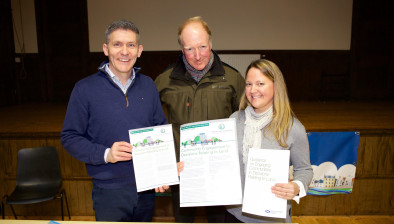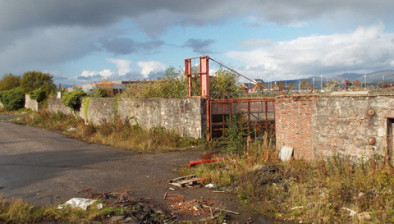Land and property tax changes ‘could support Scotland’s recovery and renewal’
Taxes on land and property could serve as a powerful tool for helping Scotland develop a robust, resilient wellbeing economy, according to a new report published today for the Scottish Land Commission.

The Alma Economics report – Land and property taxation in Scotland: Initial scoping of options for reform – identifies a wide range of ways in which taxes have the potential to help achieve long term outcomes for land reform (such as tackling inequality, expanding the supply of land for housing and reducing the amount of vacant and derelict land).
Publication of the report coincides with the setting up of a new Expert Advisory Group on Tax on Land and Property to advise the Commission and shape the recommendations that it will put to Ministers in late 2021. Members are experts in their field drawn from a range of backgrounds including accounting, regeneration and development, surveying, legal and economics
The report suggests that the Scottish Government’s goal of inclusive economic growth has been given added urgency by the disproportionate impact of COVID-19 on the most deprived areas of Scotland.
Suggesting that well-designed tax instruments could enable the Scottish Government to stimulate economic recovery and pivot towards a regionally focused development model, the report’s authors highlight a number of levers that could be used to achieve land reform objectives.
Some taxes, including council tax, non-domestic rates and Land and Buildings Transaction Tax (LBTT), are already the responsibility of Scottish Parliament which also has the option of introducing new local taxes designed to fund local authority expenditures. The Scottish Land Commission is investigating these options further and will be making recommendations for tax reforms within the devolved competency in 2021.
Other taxes such as corporation tax, inheritance tax and income tax, which is partially devolved, also have the potential to influence land ownership and use, though these are reserved taxes that require action from the UK Parliament.
While 50% of the UK’s wealth is tied up in land and property, it only forms around 10% of the total tax base.
In Scotland, just 12% of all public sector revenue across reserved and devolved taxes are raised through taxes fully or partially levied on land and property.
The Scottish Land Commission said this raises questions about how the benefits of increasing land values are distributed so that gains can benefit society as a whole.
The report argues that identifying changes to the tax system could support Scotland’s recovery and renewal, particularly in relation to town centre regeneration, promoting active land use and diverse ownership.
It adds that there is greater potential for these taxes to be used to fund crucial fiscal measures, to stimulate demand, incentivise behaviour change and reduce inequality.
Speaking about the report, Lorne MacLeod, commissioner and chair of the Commission’s newly established tax expert advisory group, said: “Land is our most valuable asset and we need to be willing to rethink how our tax system operates to make sure we are making the most of it for everyone.
“Taxes on land, and transactions involving land, are widely used around the world to raise revenues, reduce inequality and promote more effective land use and management.
“Taxes on land and property have the potential to stimulate behaviour change to incentivise a more productive use of land as well as disincentivising behaviour relating to land use and ownership that is not delivering wider public benefits.
“They also provide an important source of revenue to finance public services and infrastructure. Scotland will have to ensure best possible use of its resources, including land, to support the recovery.”
The new Tax Expert Advisory Group meeting today for the first time, will use the report as a starting point to work with the Land Commission on pragmatic and ambitious options for reforming tax on land and property in Scotland to help address inequalities and create a fairer, more resilient Scotland where everyone benefits from the use, management and ownership of land.
Responding to the report, Sarah-Jane Laing, chief executive of Scottish Land & Estates, said: “We’ll need to reflect on the detail of the report but we continue to urge the Scottish Land Commission to consider taxation in the round, with full understanding of the potential economic impact and any unintended consequences.
“The removal of Agricultural Property Relief would have the potential to enact the break-up of family farms across Scotland which would be a hammer blow to the rural economy. As the report notes, the revenue that could be raised by removal of Agricultural Property Relief is relatively small as a proportion of UK tax take so there appears to be little merit in the proposal from a fiscal point of view. SLE represents family farming businesses that over many generations have led the way in not only quality food production but also providing positive environmental and economic outputs for Scotland – something which would be placed at risk by the relief’s removal.
“Land value tax has been debated for many years but has not been taken forward by any administration because of the potential impact it may have on not just rural Scotland, but the whole of the country.
“The introduction of land value tax would have an impact on every corner of Scotland, both rural and urban - so it should be recognised that this would not be solely a land reform tool.
“In a rural context, these taxation proposals would have an effect across the entire Scottish countryside, not simply on ‘estates’ or ‘large landowners’. It could have an impact on delivering local communities’ aspirations and it would discourage those providing investment, from housing developers, to forestry businesses and farmers. Rural businesses, which invest heavily across Scotland, are already subject to a very well established and complex tax regime and it should be pointed out that land value taxation is, in effect, already in existence in the form of capital gains tax, inheritance tax and developer contribution when planning permission is granted.
“We believe the impact of any policy change of this magnitude should be considered in terms of our recovery from the economic crisis and not simply be measured in terms of the delivery of political land reform objectives. It should also be noted that many of the tax functions highlighted in the report are reserved matters and would have knock-on impacts for the rest of the UK farming.”





















